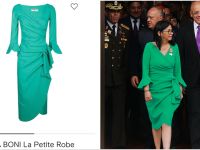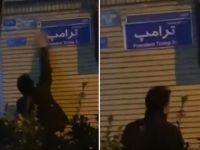General
Population 20.2 million (1999)
Population Growth Rate/yr. 3.4 percent
Religion Islam
Government Monarchy and a Council of Ministers
Languages
Arabic (English is widely spoken)
Work Week
Business:
Saturday - Wednesday
8:00 - 12:00;16:00 - 20:00
Thursdays
8:00 - 13:00
Public Sector:
Saturday - Wednesday
8:00 - 14:30
Banks:
Saturday - Wednesday
9:00 - 12:00; 17:00-19:00
Thursday: 8:00-13:00
Monetary Unit Saudi Riyal (SR)
Exchange Rate SR 3.75=US$1
Current Political Climate
King Fahd's ailing health has basically reduced him to the country’s leader in title only. Poor health is presumed to have kept him from attending the funeral of his son, Prince Faisal, in August 1999. Running the palace and country for the last several years has been the king's half-brother, Crown Prince Abdullah bin Abdul-Aziz al-Saud, who appears to be the next in a recent spate of young sons to assume power from their long-reigning fathers. His succession to the throne is expected to be a smooth one.
In a short period, the Crown Prince, who appears to be popular with the public, has already begun to leave his mark, particularly on economic matters. His influence was noticeable in the Saudi-designed OPEC agreement to cut oil production by a further 1.7 million barrels a day to help raise slumped oil prices. He is also behind a drive for economic reform, efforts to cut the royal family's spending and the introduction of greater accountability.
The Crown Prince has also been bolstering foreign relationships. He has traveled overseas twice in an official capacity, visiting South Africa, Italy, Libya, Egypt, Syria, Jordan, Morocco, London, Paris, Washington, Tokyo, Beijing, Seoul and Karachi.
Thus far, the Crown Prince has been able to focus most of his attention on economic rather than sensational terrorist matters. There have been no further bombings of American facilities in the Kingdom since the two in 1995 and 1996. The U.S. government is continuing to assist in these investigations and continues to receive reports of other possible attacks on U.S. interests.
The first attack was November 13, 1995, against an American compound in Riyadh. Toward the end of April 1996, Saudi authorities announced that they had succeeded in apprehending the perpetrators, identified as four Saudi nationals. During their interrogation, the four claimed to be veterans of the war in Afghanistan and that the attack in Riyadh was part of a “jihad” (holy war) directed against the Saudi royal family and against the leading government-appointed religious clerics in the Kingdom.
The other attack occurred June 25, 1996, when a truck packed with explosives exploded alongside the US military compound in Dhahran on the eastern coast of Saudi Arabia. Nineteen US soldiers were killed. It is believed that Islamic fundamentalists, most likely Saudi nationals, were behind the bombing, although no group has claimed responsibility.
The funding behind these attacks stems from a network of Muslim millionaires, many of whom are also implicated in funding and equipping Muslim fighters in Afghanistan, Bosnia and Chechnya and in financing terrorist operations in Egypt, Algeria and Israel.
The Saudi government officially supports a comprehensive peace in the Middle East but refuses to establish normal relations with Israel until matters such as the Palestinian, Syrian and Lebanese situations are resolved. As the vanguard of Islam's holiest sites, it also takes special interest in the final status of Jerusalem.
Of all the major players in the Arab world, Saudi Arabia’s attitude towards the regional process has probably been the most ambivalent. On one hand, King Fahd was quick to endorse the December 1994 Alexandria declaration that called on fellow Arab states to refrain from improving their relations with Israel, at least until a full Israeli peace accord with Syria had been reached. At the same time, the Saudi administration has made it clear that it fully supports recent steps towards Israeli-Palestinian reconciliation and in this spirit has expressed its willingness to jettison its long-standing position that Israel is an enemy state. The peace process, it seems, may not be in Saudi Arabia’s immediate economic interest.
© 2000 Mena Report (www.menareport.com)








